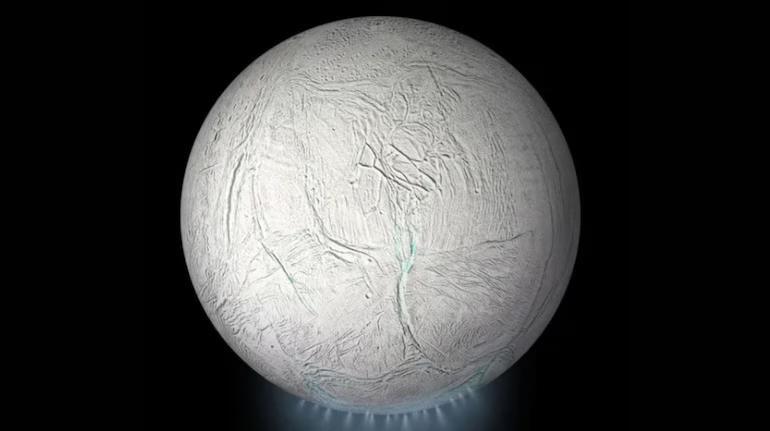
Icy moons with boiling oceans could support life: Study
The search for life beyond Earth has been an ongoing and intriguing topic in the scientific community. While much attention has been focused on Mars and other planets, recent research has shifted its gaze to the icy moons in our solar system. These moons, with their subsurface oceans, have been deemed potential candidates to support life. However, a new study suggests that even if these oceans boil when their ice shells become thin, life could still thrive deeper beneath the ice.
The study, which has garnered significant attention, proposes that the unique conditions found on these icy moons could allow liquid water to turn into vapor, resulting in boiling oceans. This phenomenon occurs when the ice shell becomes thin, reducing the pressure and temperature conditions near the water triple point. The water triple point is the specific temperature and pressure at which water can exist in all three phases: solid, liquid, and gas. When the conditions are near this point, the liquid water can easily turn into vapor, leading to boiling.
At first glance, it may seem that boiling oceans would be inhospitable to life. However, researchers argue that despite these extreme conditions, life could still survive deeper beneath the ice. The key to this survival lies in the fact that organisms could thrive in the deeper, darker regions of the ocean, insulated from the extreme conditions near the surface. This concept is not new, as similar conditions are found on Earth, where life thrives in deep-sea vents and other extreme environments.
The icy moons in question, such as Europa and Enceladus, orbit Jupiter and Saturn, respectively. These moons have been found to have subsurface oceans, which are warmed by tidal heating, a process caused by the gravitational pull of their parent planets. This heating can lead to the formation of liquid water, a crucial ingredient for life. However, as the ice shell becomes thinner, the conditions near the surface become more extreme, leading to the boiling of the oceans.
The study’s findings have significant implications for the search for life beyond Earth. If life can survive in the deep, dark regions of these icy moons, it opens up new possibilities for where we might find life in our solar system. The discovery of life on one of these moons would be a groundbreaking finding, one that would challenge our current understanding of the origins of life and the conditions necessary for its survival.
The research team behind the study used computer simulations to model the conditions on these icy moons. They found that even when the oceans were boiling, the temperature and pressure conditions deeper in the ocean were still suitable for life. The team also identified specific regions on these moons where life could potentially thrive, providing a roadmap for future research and exploration.
The next step in this research will be to explore these icy moons in more detail. NASA and other space agencies have planned missions to explore Europa and Enceladus in the coming years. These missions will provide valuable insights into the conditions on these moons and potentially uncover evidence of life. The discovery of life on one of these moons would be a major breakthrough, one that would have significant implications for the fields of astrobiology and the search for life beyond Earth.
In conclusion, the study’s findings suggest that icy moons with boiling oceans could still support life. The unique conditions found on these moons, while extreme, could allow life to thrive in the deeper regions of the ocean. This research opens up new possibilities for the search for life beyond Earth and highlights the importance of continued exploration and study of our solar system. As we continue to explore and learn more about these icy moons, we may uncover evidence of life that challenges our current understanding of the universe and our place within it.






